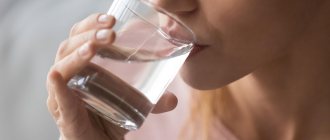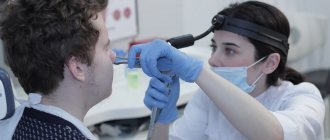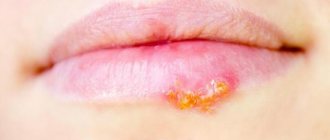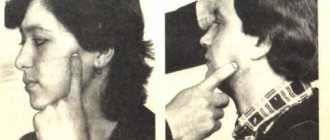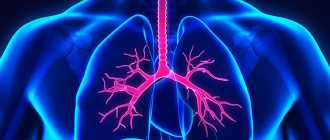A cold on the lip or labial herpes is a disease that brings serious discomfort and, in addition, a pronounced visual problem.
Most often, the disease affects the area in the corners of the mouth, but sometimes it spreads to all the lips and even appears on other facial areas. Herpes is transmitted by airborne droplets and you can even catch it on the street.
Symptoms of the disease do not appear immediately and the patient may initially experience only a slight burning sensation in the lips. After a few hours, small herpetic blisters appear in the mouth area, which subsequently turn into abscesses and growths.
As a rule, herpes with timely treatment goes away quickly without causing additional symptoms. But in some patients, a cold on the lip may be accompanied by itching throughout the body and fever.
Let's figure out how this disease can be treated and what methods. I myself have encountered similar situations, so I want to offer you effective ways to combat this illness that I have tried.
Causes of herpes on the lips
Herpes labialis is an easily spread viral disease. A patient who is infected once remains a carrier of the disease for life.
The virus remains in the body and appears again with any irritating factor.
You can get a cold sore on your lip in the following ways:
- By airborne droplets. In public places, public transport or on the street. Infection occurs when a carrier of the virus sneezes or coughs in the presence of a healthy person.
- Through direct contact with a carrier of the virus. When kissing or hugging.
- By everyday means. Labial herpes is transmitted not only through direct contact with a carrier of the virus. You can become infected through household utensils, in public baths, canteens or swimming pools. This also applies to beauty salons, where combs, nail files, solariums and other equipment are provided for general use.
- In a medical organization. In the event that the syringes and examination instruments have not been professionally processed after the previous patient.
The risk of a viral disease is higher if hygiene rules are not followed, with reduced immunity and against the background of a current cold or viral disease.
Memo
It must be remembered that when herpes rashes appear, a person becomes acutely contagious. Moreover, not only those around him can suffer, but also the sick person himself. For example, from a lesion on the lips with dirty hands the virus can be carried into the eyes or genitals.
Therefore, it is important to follow the following rules.
- Do not touch lips affected by rashes. If you touch them, wash your hands thoroughly.
- Use your own towel and utensils.
- If your lips are affected, do not squeeze the blisters or pick off the scabs. This may cause additional skin infection.
- Refrain from kissing and oral-genital contact.
- If you wear contact lenses, do not wet them with saliva to moisten them.
- Apply antiviral cream to your lips not with your fingers, but with cosmetic sticks.
How to stop a cold on the lip at the initial stage
Herpes is easy to get infected even on the street and the virus progresses quite quickly when it enters the body, developing in a matter of hours. With surgical treatment, a mild course of the disease and short-term recovery can be achieved.
The herpes labialis virus can be stopped if signs of the disease are detected at the initial stage.
If the following alarming symptoms appear:
- Tingling and burning
- Redness around the lips
- Pain around the mouth and larynx
- Temperature and itching on the lip
Treatment for herpes should be started immediately. These signs indicate the onset of the disease and at this stage it is possible to prevent herpes.
The patient has approximately two days for treatment before the next symptom appears - transparent blisters, which indicates the transition of the disease to a more severe stage.
Treatment should also be started if there has been contact with a carrier of the virus.
To treat labial herpes at the initial stage, antiviral drugs should be used. Today there are a large number of ointments and tablets against colds on the lip that are available without a prescription.
Antiviral drugs slow the progression of the disease, relieve symptoms and alleviate the patient's condition.
Why does lip inflammation develop?
There are many reasons for the occurrence of cheilitis. Different reasons cause different types of lip inflammation. However, there are some common catalysts, for example, deficiency of vitamins, iron, calcium, excessive use of various medications (for example, antibiotics), constant exposure to drafts or living in a city with very low air temperatures in winter, strong and regular ultraviolet radiation, poor immunity.
The causative agents of allergic cheilitis are, of course, allergic reactions to cosmetics or food, infectious - various diseases (viruses, fungi), glandular - dermatological diseases, meteorological - frequent chapped lips and being outside without hygienic lipstick, and candidal - stomatitis and simply poor care behind the oral cavity.
Exfoliative cheilitis occurs in those who often bite off pieces of skin from their lips or simply constantly lick them (observed only in women). These actions can be triggered by frequent anxiety and stress. Manganotti cheilitis occurs only in adult men and is provoked by various injuries to the oral cavity, stomach diseases, frequent and long exposure to the sun or in a solarium, as well as clear signs of aging, which are caused by the fact that the mucous membrane is now regenerating more slowly. Hypovitaminosis occurs due to a lack of vitamins B2, B2 and other B vitamins.
What to do if a cold on your lip is brewing
You can prevent a cold on the lip immediately after contact with a carrier of the disease, if such an incident took place.
To prevent the occurrence of herpes on the lip before obvious signs of the disease appear, you must:
- Treat lips and the skin around them with an antiseptic
- If you have makeup on your face, wash it off with a special product.
- Maintain good hygiene
- Try to avoid common areas, swimming pools, saunas or beauty salons
- Do not touch the lip area with your hands, do not scratch the skin
- Take a course of vitamins and support your immune system
Thanks to these simple rules, you can prevent the occurrence of herpes and prevent the virus from developing in the body. In addition, after direct contact with the carrier, you can apply antiviral ointment to the area around the lips for prevention.
The ointment will not worsen the condition, but will be able to block the virus, preventing it from settling in the body.
Infection
Almost 85% of the population are carriers of herpes simplex virus type 1. Primary infection usually occurs in early childhood, for example, through contact with the mother, relatives, and other children. The primary infection may go unnoticed, but in some cases, with weakened immune defenses, severe herpetic symptoms and even severe lesions are possible with an incubation period of 2 to 12 days.
Primary infection occurs, as a rule, through the mucous membrane of the oral cavity and the virus spreads throughout the body, invades all cells, and multiplies. During the first week, the immune system suppresses the infection, but does not recognize and cannot suppress viral particles that have invaded the axons of nerve cells. In such “viral depots,” a herpes infection remains for life and serves as a source of relapses of herpes (secondary infection of the body). Statistics show that after a primary infection, on average, in three out of ten cases, under certain conditions, recurrence of herpetic symptoms occurs, and in one out of a hundred infected people, symptoms of herpes on the lips .
Reactivation of the virus and its uncontrolled reproduction of the virus in the body occurs when the immune system is weakened, which can be facilitated by various factors: skin irritation, burns (including sunburn), irritation of nerve nodes (for example, during dental procedures), stressful conditions, hormonal imbalances , colds, fever, infectious diseases and others.
The important thing is that the risk of infection comes not only from people with visible symptoms of herpes on the lips, but also from those without symptoms. Reactivation of the virus does not necessarily lead to external manifestations such as colds or fever on the lips, but is accompanied by the appearance and reproduction of viruses in the mucous membranes.
The most effective ointment for herpes
Ointment is the very first remedy that should be in the first aid kit so that you can resort to use at the first sign.
As a rule, antiviral ointments are used to treat a cold on the lip. They quickly relieve itching and burning, soothe the skin and stop the further development of the disease.
And besides, they are safe for the body and have virtually no contraindications.
The most effective ointments against herpes on the lips are:
- Acyclovir. A specialized remedy for the fight against labial herpes, slowing the progress of the disease. The components of the ointment block the DNA of the virus and prevent it from developing. Acyclovir is most effective at the initial stage of herpes development. It not only gets rid of colds on the lips, but also relieves all pain and itching in a short time. Acyclovir has virtually no contraindications and is available without a doctor's prescription.
- Penciclovir. An effective remedy against herpes, similar in principle to Acyclovir. The difference is reflected in higher performance and price. Penciclovir is able to stop the virus 10-12 hours faster than analogues.
- Ribavirin. It cuts into the genome of the herpes virus and causes mutations that are safe for the patient’s body, but fatal for the virus. Acts as a standalone remedy for cold sores and as an effective complement to Acyclovir. Due to their different mechanisms of action, these drugs complement each other perfectly.
- Erazaban. A docosanol-based product that is effective against the herpes virus. The method of action of the drug is significantly different from others, namely, erazaban blocks the penetration of the virus into the body’s cells. In addition, the drug has a drying effect and is a means to prevent the occurrence of the disease.
Less effective and less commonly used ointments against colds on the lip are also drugs such as doconazole, allostatin and other antiviral agents.
We are going on vacation to hot countries. What to add to a standard traveler's first aid kit?
A sharp change in climate and excess UV radiation lead to overheating of unprepared areas of the skin, which disrupts the functioning of the skin’s immune cells and reduces the ability to identify and “defeat uninvited guests.”
To reduce the harmful effects of high temperatures on the skin, include Allomedin® gel in your usual beach post-care routine. The gel should be applied after a shower to areas of the skin exposed to intense (excessive) insolation. It is not difficult to identify them: these are always open areas of the body (for example, the face), and in addition, such skin continues to “burn” even several hours after exposure to the sun. Allomedin® gel will quickly soothe, cool the skin and restore the functioning of “protective cells”.
How to quickly cure a cold on the lip at home in 1 day in an adult
Lobial herpes, if not prevented at an early stage, can become a serious problem. The patient first develops small watery blisters in the lip area, which later turn into abscesses and growths.
At this stage, it is almost impossible to cure herpes in one day, but there are remedies that can dry out the ulcers and stop the further development of the disease.
In addition to the ointments listed above, the following drugs are often used against colds on the lip:
- Vacyclovir (tablets). A new generation drug that can stop the herpes virus quickly and effectively. Should be taken 2 times a day with plenty of water for 4-5 days until complete recovery.
- Fenistil Pencivir (gel). A remedy that is most effective in the later stages of the disease. Helps dry out ulcers and growths even in a neglected state. Unlike its cheaper counterparts. The number of applications per day is unlimited, the product has virtually no contraindications.
- Famvir (tablets). A medicine containing the active ingredient famciclovir. It is highly effective not only in the fight against herpes, but also against herpes zoster and many other diseases. A fairly strong remedy that can not only stop, but also completely stop the reproduction of the virus. The drug must be taken 3 times a day for a week.
- Interferon, Kagocel, Echinacea, Viferon, Neovir, etc. A group of drugs aimed at increasing the body's immunity and, as a result, the ability to resist the virus. Such drugs can be used as the main ones in the fight against the herpes virus or as an additional remedy in conjunction with one of the above for maximum effect.
We treat herpes on the lip in 1 day with folk remedies
Folk remedies are highly effective in fighting colds on the lip and are suitable if you urgently need to get rid of ulcers and growths that spoil the aesthetics of your face.
Traditional methods can be used either in addition to the above remedies or separately.
- Essential oils contain completely natural components obtained from the processing of medicinal plants. For the treatment of herpes, lotions made from sea buckthorn and fir oil, as well as tea tree oil, are excellent.
- Propolis tincture helps get rid of many diseases. Including labial herpes. The healing tincture can be applied in small quantities to ulcers and growths, and also use lotions soaked in this remedy.
- Treatment with garlic is the most unusual method of combating a cold on the lip. But, despite its pungency, the plant copes with its task perfectly. To get rid of herpes boils, garlic is grated and placed in gauze. Such lotions must be done every 3 hours for effective recovery.
Natural tea tree oil helps me a lot. I only apply it to the affected areas. Lubricating should be done every couple of hours, and it is important to use a natural, quality product.
Usually, cheap pharmacy oils are not very effective, and it is better to purchase high-quality, proven companies.
Is toothpaste effective for herpes on the lips, and which one?
To treat herpes on the lip, toothpaste is often used. This is a proven folk method that allows you to quickly get rid of ulcers on the lips, even with an advanced form of the disease.
The paste should be applied at night as the product must work for a long time. The mixture is applied directly to the abscess and left until completely dry for 3-4 hours, or overnight.
Toothpaste dries out herpes boils and growths and helps to get rid of them quickly. But for the product to help, you need to use a paste only with a natural composition.
The ingredients should not contain artificial fragrances or dyes. A cheap white paste with propolis or medicinal herbs is best.
Is it possible to permanently get rid of the herpes virus in the body?
It is impossible to get rid of the herpes virus forever. It penetrates the body and remains with the patient for the rest of his life. The virus lives in nerve cells and the spinal cord, but may not cause any disorders or complications in life.
One way or another, 90 percent of the entire population of the planet are carriers of the herpes virus. At the moment, there are a large number of drugs that can stop the DNA of the virus.
But at the same time, a remedy that allows you to get rid of herpes forever has not yet been invented.
Why is the herpes virus dangerous?
The herpes simplex virus affects many organs and systems. Herpetic blisters can appear on the mucous membranes of the vagina, cervix, urethra, mouth and skin, and with an extensive process they can appear in the liver and brain. Herpes can cause dysfunction of both the autonomic and central nervous systems. In addition, the herpes virus is associated with cancer, unfavorable pregnancy, childbirth, as well as pathologies in the fetus and newborns. According to the World Health Organization, the mortality rate from severe forms of the herpes simplex virus is 15.8% compared to other viral infections and ranks second after deaths from influenza (35.8%). In our country, the number of patients diagnosed with herpes infection every year exceeds 2.5 million. Patients with chronic herpetic lesions of the skin and genitals make up more than 10% of the total population of Russia.
